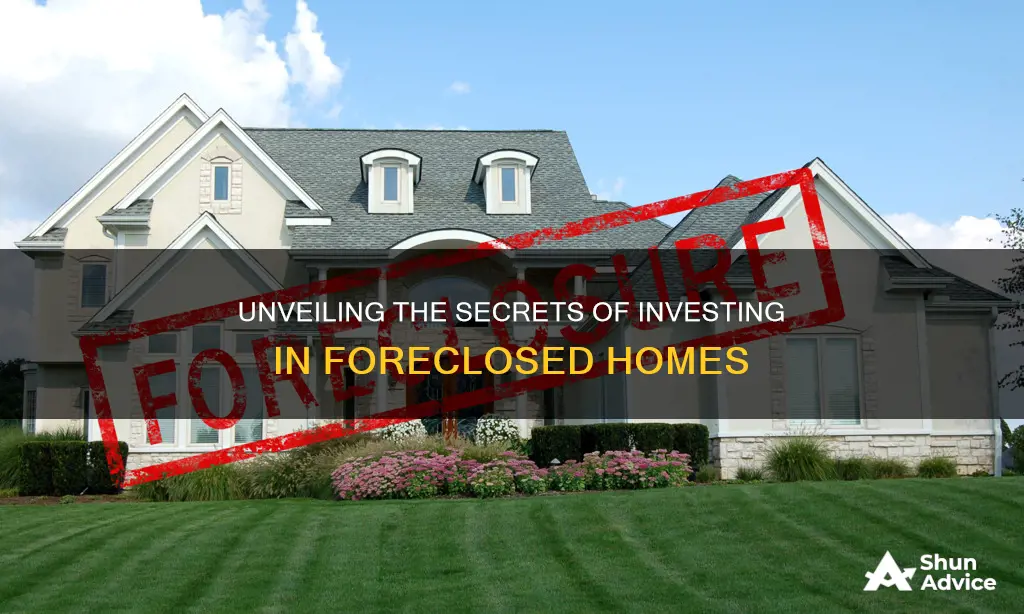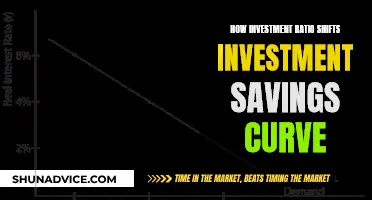
Buying a foreclosed home can be a great investment opportunity, but it's important to be aware of the potential risks involved. Foreclosed homes are usually sold by banks or lenders, who have taken ownership of the property after the previous owner defaulted on their mortgage payments. These homes are often sold at lower prices and can be a great option for those looking for a bargain. However, there are some key differences between buying a foreclosed home and a traditional home purchase.
One of the main differences is that foreclosed homes are typically sold as is, meaning that any repairs or maintenance issues become the responsibility of the new owner. It's crucial to get a professional home inspection to assess the true condition of the property and determine the cost of any necessary repairs. Another difference is that the purchase process for a foreclosed home may take longer, as multiple levels of approval are often required.
When considering buying a foreclosed home, it's important to do your research and be comfortable with taking on a higher level of risk. Working with an experienced real estate agent who understands the local market and foreclosure laws in your state can be extremely beneficial. They can help you navigate the additional paperwork and guide you through the unique challenges of buying a foreclosed property.
Additionally, it's crucial to get pre-approved for a mortgage and determine your budget before starting your search. This will ensure that you don't end up purchasing a home that's out of your budget, especially considering that foreclosed homes often require additional repairs and maintenance.
In summary, buying a foreclosed home can be a great investment opportunity, but it's important to be aware of the potential risks, do your research, and work with experienced professionals to guide you through the process.
| Characteristics | Values |
|---|---|
| Types of foreclosure sales | Pre-foreclosure, short sale, sheriff’s sale, bank-owned |
| Advantages of buying a foreclosed home | Lower prices, standard loan configurations |
| Disadvantages of buying a foreclosed home | Lengthy approval process, possible condition issues, competition from professional flippers, increased maintenance concerns, as-is sales, squatter's rights |
| Ways to find foreclosed homes | Website and print publications, multiple listing service (MLS), foreclosure websites, real estate professionals |
| Steps to buy a foreclosed home | Understand the types of foreclosure purchases, hire a real estate agent, find foreclosures for sale, get preapproved for a mortgage, get an appraisal and inspection, purchase the home |
What You'll Learn

Understand the types of foreclosure purchases
There are two main ways to purchase a foreclosure: at auction or from a lender after they failed to sell at auction. However, you can also pursue options to purchase homes on the cusp of foreclosure.
Auction
Auctions are a common way to purchase a foreclosed home. You can get a home faster at auction than you would by negotiating with a bank or seller, and you can also buy a property significantly below market value. However, most auctions only accept cash payments, which means you’ll need a significant amount of money available for the purchase. If the auction allows for mortgage financing, make sure your initial approval is ready. It's important to recognize that not all approvals are equal.
When you purchase at an auction, you agree to buy the home "as is" without an appraisal or inspection. You’re taking on a big risk when you buy a foreclosed home at auction, so speak with a real estate attorney if you’re interested in this type of purchase.
Bank-Owned Properties
You can also purchase a foreclosed home directly from a lender's real estate owned (REO) inventory. The lender usually clears the title and makes sure it’s vacant before you buy the foreclosed property. Most lenders won’t sell bank-owned properties directly to a buyer, so you must talk to an experienced real estate agent to see any available properties. These homes are usually sold "as is", but you can typically view the home and order an inspection before you close.
Preforeclosures
A preforeclosure is a property in the early stages of foreclosure. Many databases, including the multiple listing service (MLS), tag homes in preforeclosure, so assembling a list of potential preforeclosures is relatively straightforward. You will need to look more deeply into the situation of any home listed as a preforeclosure because a database won’t offer a complete picture. The database tag just means a homeowner received a notice of default from their lender.
The home may never go on sale, or the current owner may be eager to work on selling it to you to offload the property – presenting you with a great opportunity. Purchasing a preforeclosure can be a win-win situation. You can buy a home at a lower price while the homeowner can avoid the final stages of foreclosure.
Short Sale
A short sale occurs when a homeowner sells a home for less than what they owe on the mortgage. The foreclosure hasn’t been finalized. Not all short sale properties are in preforeclosure, but some are. If the homeowner still owns the home, you can work with their real estate agent.
When you buy a short sale home, the lender (not the homeowner) must approve your offer, and you may spend a lot of time waiting for approval.
Local Superfund Sites: Worthy Investment Opportunities
You may want to see also

Research the market and find foreclosed homes
The first step to buying a foreclosed home is to research the market and find foreclosed homes that are available for purchase. Here are some ways to do that:
Websites and print publications
You can find foreclosed properties listed for sale on various websites and print publications, such as online real estate searches, bank offices and websites, and local newspapers. Some websites specialise in homes and properties in foreclosure, such as Fannie Mae’s HomePath, while some financial institutions, like Bank of America, also have web search pages for foreclosed homes.
Multiple listing service (MLS)
In local multiple listing services, the foreclosure status of a property may not be highlighted, and it may only be stated in the property description. Many databases, including the MLS, tag homes in preforeclosure, so assembling a list of potential preforeclosures is relatively straightforward.
Real estate professionals
Lenders are increasingly selling seized assets through real estate agents, so don’t hesitate to ask a real estate broker or agent for opportunities. Some real estate professionals even specialise in foreclosure properties and can help you search for foreclosures, navigate the buying process, negotiate your purchase price, order an inspection and make an offer.
Search engines
When you type “foreclosure listings near me” into a search engine, it should show you several websites that feature such properties.
Real estate websites
Most real estate websites feature pre-foreclosures, homes up for auction, and REO (real estate owned) properties. As an investor, the best platform to use is the Mashvisor Property Marketplace.
Auctions
Public auctions are usually how to buy a foreclosed home, but there are also online auctions. There are two types of auctions: a public foreclosure auction, which can occur when ownership of the property officially transitions to the bank, and auctions through an auction company, which often sell properties from various banks and investors.
Government-owned properties
Some homes are purchased with loans guaranteed by government bodies like the U.S. Department of Housing and Urban Development (HUD), the Federal Housing Administration (FHA), or the Department of Veterans Affairs (VA). When these properties go into foreclosure, they are repossessed by the government and sold by brokers working on behalf of the federal agency. A government-registered broker must be contacted to purchase one of these properties.
Market Downturn: When Will My Investments Rebound?
You may want to see also

Get pre-approved for a mortgage
Getting pre-approved for a mortgage is an important step in the home-buying process. It involves consulting with a lender, who will review your financial information, and can help clarify your budget and the monthly mortgage payment you can afford.
Understand the Difference Between Pre-Qualification and Pre-Approval:
Before starting the pre-approval process, it is important to understand the difference between pre-qualification and pre-approval. Pre-qualification is a tentative assessment of how much a lender would be willing to lend you, based on a quick review of your financial information. On the other hand, pre-approval is a more significant milestone, as the lender is actually checking your credit and verifying your financial information. If you are pre-approved, the lender is making a commitment to loan you money, subject to certain conditions.
Consult a Lender:
The next step is to consult with a lender, such as a mortgage specialist or broker, who will review your financial strategy and needs, including the mortgage amount, down payment, and purchase price. They will also discuss the various mortgage options available to you, such as fixed vs. variable rates, interest terms, payment options, and amortization.
Provide Financial Information:
To get pre-approved for a mortgage, you will need to provide the lender with detailed financial information. This includes your employment history, income, assets, liabilities, and down payment amount (if applicable). You will also need to provide authorization for the lender to obtain a credit report. The lender may also require additional documentation, such as income confirmation and down payment confirmation.
Review Documentation Requirements:
To secure final loan approval, you will need to provide the lender with several documents. These typically include:
- 60 days of bank statements
- 30 days of pay stubs
- W-2 tax returns from the previous two years
- Asset account statements (retirement savings, stocks, bonds, etc.)
- Driver's license or passport
- Divorce papers (if applicable)
- Gift letter (if receiving a financial gift for the down payment)
Understand the Pre-Approval Conditions:
After reviewing your application, the lender will typically provide one of three decisions: pre-approved, denied, or pre-approved with conditions. If you are pre-approved with conditions, you may need to provide additional documentation or take steps to lower your debt-to-income ratio. It is important to carefully review the conditions and work with the lender to meet their requirements.
Receive the Pre-Approval Letter:
Once you are pre-approved, the lender will provide you with a pre-approval letter, which confirms their commitment to loan you money for the purchase of a home. This letter is typically valid for 60 to 90 days and can be submitted with your offer when you are ready to make a purchase.
Be Aware of the Limitations:
It is important to note that getting pre-approved for a mortgage does not guarantee that you will receive a specific interest rate or mortgage from the lender. Circumstances can change between the time of pre-approval and the actual purchase. Additionally, pre-approval does not obligate you to borrow from a specific lender. You have the option to choose the lender that offers the best rate and terms for your needs.
By following these steps, you can increase your chances of getting pre-approved for a mortgage and be one step closer to buying your dream home or investment property.
Lucrative Investment Opportunities: Exploring Avenues with 10 Percent Returns
You may want to see also

Hire a real estate agent
Hiring a real estate agent is an important step in the process of buying a foreclosed home. A qualified foreclosure agent can help you search for foreclosures, navigate your state's REO buying process, negotiate your purchase price, order an inspection, and make an offer.
Not every real estate agent has experience working with REO agents, so it is important to find one who does. An REO agent is a real estate agent who works on behalf of the lender to sell the foreclosed property. Most lenders hand off foreclosed properties to an REO agent, who then works with traditional real estate agents to find a buyer.
A good real estate agent will be able to help you determine if a foreclosed home is being offered at a bargain price or if the asking price is too high for the risk involved. They can also help you find foreclosed properties that other buyers might miss and discuss any challenges you could run into with a foreclosed property.
It is important to remember that every state has unique laws and regulations concerning foreclosures, so it is crucial to work with an agent who understands these laws.
If this is your first time buying a foreclosed home, a real estate agent can help you navigate the process and make it easier for you. They can negotiate on your behalf, tell you about any local regulations that you should be aware of, help you draft an offer letter, inform you of any issues to look out for, and answer any questions or concerns you may have about the process.
What to look for in a real estate agent
When hiring a real estate agent to help you buy a foreclosed home, there are several things you should look for:
- Experience with REO properties and the foreclosure process
- Knowledge of your local market and any regulations specific to your state
- Ability to help you navigate the buying process and any challenges that may arise
- Willingness to negotiate on your behalf and help you get the best price
- Capacity to order an inspection and make an offer
Remember that the role of a real estate agent is to represent your interests and help you make an informed decision. They should be able to provide you with the information and support you need throughout the process of buying a foreclosed home.
Apple's Liquidmetal Investment: Exploring the Boundaries of Innovation
You may want to see also

Get an appraisal and inspection
Getting an appraisal and inspection is a crucial step when buying a foreclosed home. An appraisal is a lender requirement that estimates the dollar value of a property. Lenders require appraisals before issuing home loans to confirm they are not lending borrowers too much money. For the buyer, an appraisal helps confirm they are not overpaying for a property. An appraisal typically costs between $300 and $450, and the buyer usually pays the fee. A qualified appraiser should be licensed or certified and be familiar with the local area. They will create a report based on an in-person inspection, research into recent sales of similar properties, current market trends, and the details of the home, including its size, condition, floor plan, and amenities.
A home inspection is an in-depth look at the inner and outer workings of a property. A professional home inspector will walk through the home and write down everything that needs to be replaced or repaired. Foreclosed homes typically need extensive repairs, so an inspection is highly recommended before purchase. A home inspector will usually cost between $300 and $400. They will provide a complete report on the structure, mechanical, and major components of the home and property. This will give you a better picture of what you are buying and provide a framework to prioritize repairs. If you are buying a foreclosure at an auction, you will not be able to get an inspection or appraisal before you buy, so only consider this option if you are skilled with home repairs.
Investment Calls: Why You?
You may want to see also
Frequently asked questions
A foreclosure happens when a home is seized by a lender, usually due to the homeowner's inability to keep up with their mortgage payments.
Foreclosed homes are priced to sell, often listed below market value, making them an attractive option for those looking for a bargain.
Buying a foreclosed home is riskier than buying a regular home. The properties may have been neglected or damaged, and there is often a lengthy approval process involved.
Foreclosed homes are listed for sale in a similar way to traditional homes, on websites, in newspapers, and through real estate agents. There are also specialist websites that deal with foreclosed properties, and some banks and government websites list REO (real estate owned) properties.
The process for buying a foreclosed home is similar to buying a regular home. You will need to determine your budget, get pre-approved for a mortgage, hire a real estate agent, and make an offer. However, there are some differences. For example, foreclosed homes are often sold at auction, and you may not be able to get a home inspection or appraisal before committing to the purchase.







